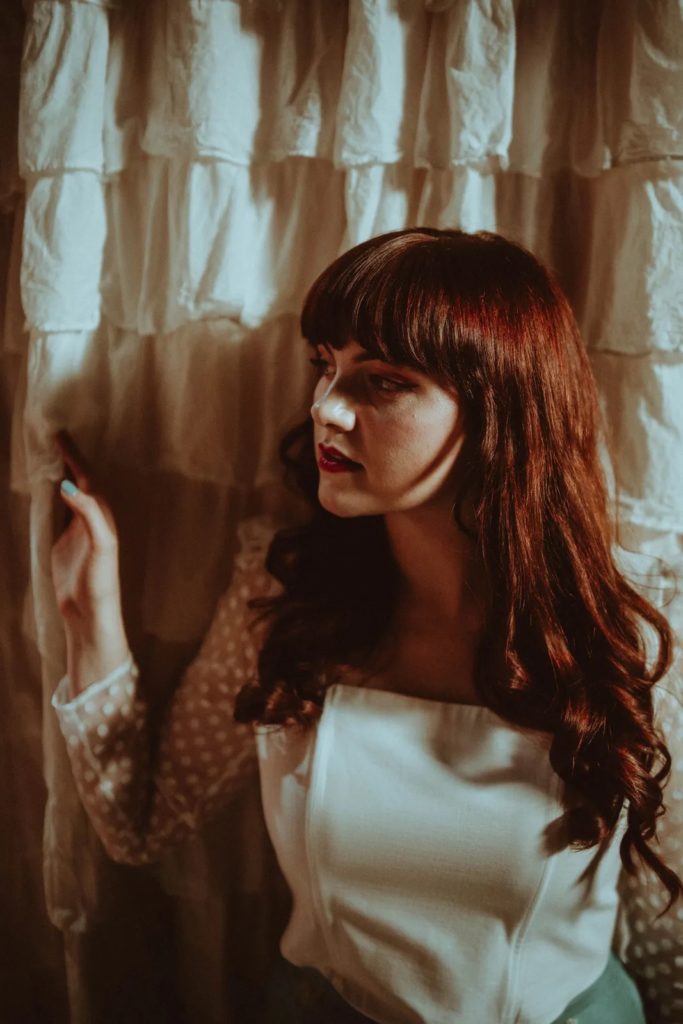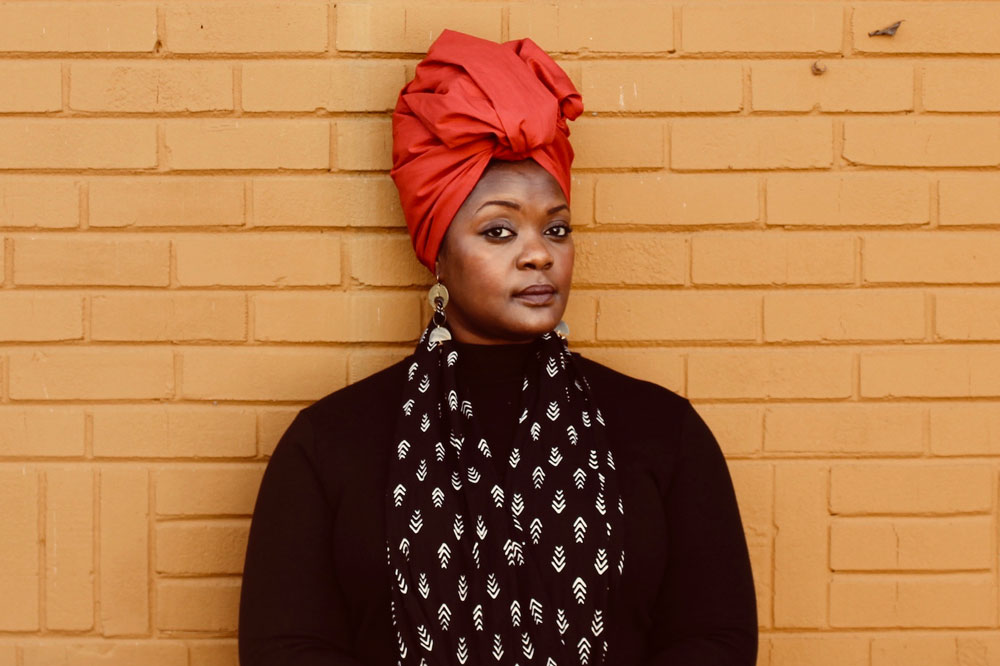
The spine of Erin McLendon’s old songwriting notebook is held together by a few pieces of tape.
She flips through pages, laughing and groaning at some of the songs she’s written.
“We’re getting into the part of this where I started writing more with women,” she says.
McLendon is a songwriter, and in Nashville, songwriters often work together in teams called co-writes. She started writing with other women after having negative experiences collaborating with men.
“They start to come on to you, and it’s very, very uncomfortable. Or you notice them looking at you a certain way,” she says. “And what sucks is, as women, we feel like we need to apologize for walking out of the room.”
McLendon’s experiences inside the co-writing room are not unique. WPLN spoke to eight women in the music industry who described similar encounters working in Nashville’s songwriting scene — being hit on, harassed or asked inappropriate questions.
Those experiences have real consequences. Only an alarmingly small fraction of popular songs are written by women. In a study of 1,000 Billboard charted songs over the last 10 years, less than 15 percent were written by women. And often those women are credited alongside men.
Inside the co-writing room
Songwriter Ele Ivory moved to Nashville when she was only 12 years old. She remembers feeling like she had something to prove. She was eager and excited to get into the co-writing room.
 Courtesy of Ele Ivory
Courtesy of Ele Ivory “It feels pretty demeaning, honestly,” Ele Ivory says of being sexually harassed during co-writes.
But over time, she started to feel as though men weren’t asking her to collaborate because of her skills. It seemed like there were ulterior motives.
“I often find with my co-writing one-on-one experiences with guys, there’s not a second one,” she says.
That’s because the conversation usually becomes uncomfortable. Men would bring up their sex lives, or ask probing questions, under the guise of getting to know each other or opening up to write music.
“Why are you asking questions like how old I am? And why are you asking more intimate details about like, you know, my dating history?” Ivory says. “Like, we’re not really writing about that.”
Now, she says she usually invites a third songwriter along to help diffuse the tension if she agrees to collaborate with a man. And she asks other women songwriters what it was like to work with him first. It’s like an informal whisper network.
“It’s all word of mouth,” Erin McLendon says. “Because if there’s something on paper, I mean, you can get blacklisted from this industry so quickly. I’ve watched it happen.”
What women write about
Beyond affecting who gets credit, co-writing can also impact what the song will sound like.
Kyshona Amrstrong is a music therapist turned songwriter. She says who she writes with can change how authentically she tells a story in her music.
“There is an underlying passion or anger that I have when I have my song ideas,” Armstrong says. “When I bring them into the room with a male — sometimes it’s great. But sometimes, I feel that that underlying current is kind of washed down a little bit … watered down a bit.”
But when she writes with another Black woman, like she did on her song “We The People,” she says it’s a different experience.
“Like, these are the lyrics and the song of a reclamation,” Armstrong says of the song. “I’m claiming something that I feel when I write with Black women. I can own that.”
 Courtesy of Kyshona Armstrong
Courtesy of Kyshona Armstrong “There’s something even more powerful about writing something that is authentic to self and passionate, because that’s what draws other songwriters and artists really to the music,” says Kyshona Armstrong.
But she says some songwriters feel pressured to walk a fine line between sharing their true experiences, and making a song that will sell.
“I don’t want to write a song about a tailgate and a beer,” says songwriter Janelle Faiman.
She moved to Nashville to work in the country music industry about a decade ago. But when she got here, she says she immediately felt like she didn’t fit in.
Faiman is a lesbian, and says country music felt so male-centric. She is just one of many women in country music who say they’ve been pushed to write songs about daisy dukes and pickup trucks.
Which artists women write for
Female songwriters can be even further limited by which artists they write for, Faiman says. Women in the industry say it’s not uncommon for men to write for female artists.
“Why is a middle-aged man writing a song about a 20-something-year-old women’s perspective?” Faiman asks. “It just doesn’t make sense to me.”
But it’s rarer for women to write for men.
Crys Matthews says that doesn’t make much sense either.
“Who better to write a love song about a hot girl than a lesbian?” Matthews says with a smile. “I mean, I feel like I’ve got the inside track.”

“There’s no reason to even second guess whether or not a man or a woman or anybody else in between would be able to sing that song,” Crys Matthews says.
Matthews is new to town, and moved to Nashville to further her music career.
She wants to challenge outdated perceptions about who women can write for or about.
“We never ask straight artists, ‘Do you think that LGBTQ people will relate to your songs and will see themselves and their relationships in your songs?'” Matthews says. “We never ask that, because of course we do.”
She says people should be able to connect with a good song, regardless of who is singing it, or even who wrote it.

